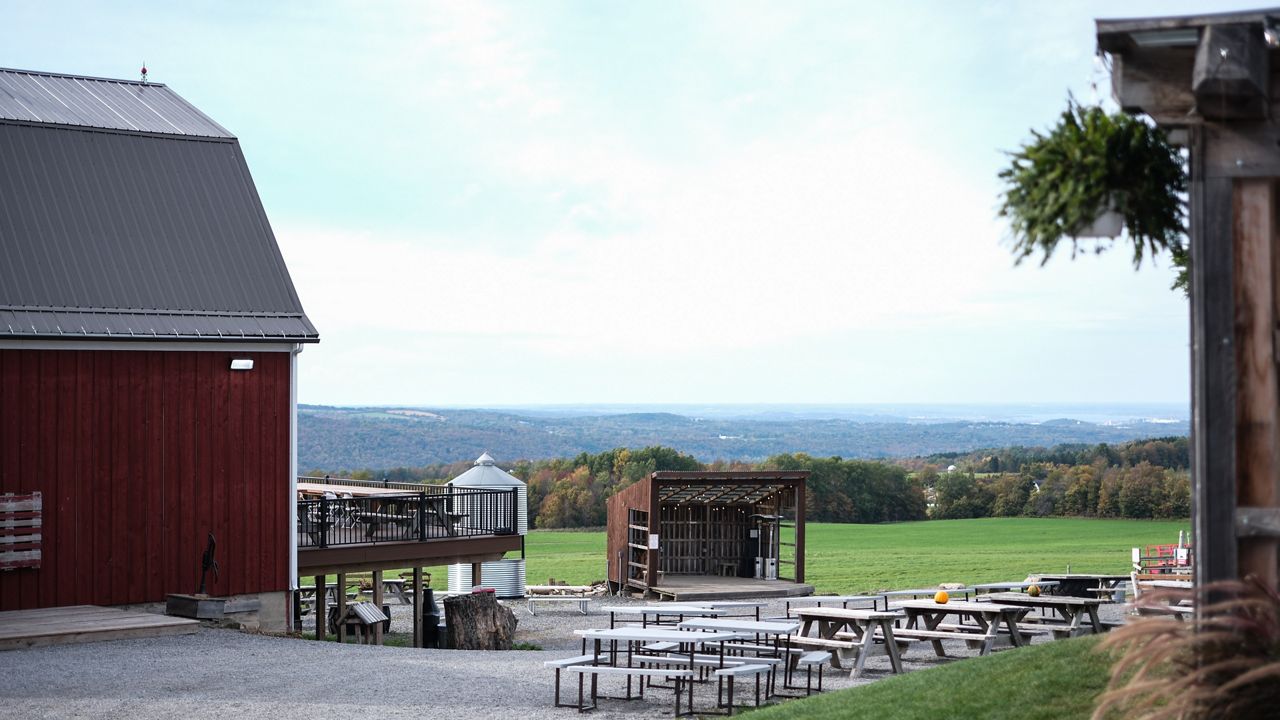The developer of a 10,000-square-foot meat processing facility, is facing a lawsuit filed by neighbors who are against the new facility.
The lawsuit against Dan Palladino of Heritage Hill in Pompey cites concerns over noise, smell and traffic related to the processing facility, which Palladino said will process beef, and pork into chops, smoked meats, sausages and dry-aged steaks. It was filed in Onondaga county court on Sept. 27.
“My first reaction is it makes me very sad,” Palladino said. “If you have ever been to Heritage Hill, we’ve gone out of our way to make it a family friendly place to have a low impact on our neighbors.”
The lawsuit was filed by several people who all own property adjacent or near Palladino’s 285-acre farm.
In court paperwork, attorneys for the group argue the plan is not consistent with the town of Pompey’s comprehensive plan and points to the town’s commitment to being a prime location for residents who want to live in a quiet and rural setting.
Additionally, the lawsuit says the meat processing facility is inconsistent with the zoning code and goes against what is permitted in a farm district, which includes farm stands, public utility substations, schools/place of worship, windmills, home occupation, veterinary services, outdoor recreation, cemeteries, kennels, stables and boarding/riding facilities.
They are requesting the court nullify the town of Pompey’s Planning Board approval of the facility.
But Palladino said the facility would improve the local food supply chain.
“Nobody is even going to know it is there. We’re already smoking meat now, but instead we would be using commercial smokers that are highly efficient with a very low output,” he said. “You are not going to hear or smell it.”
Animals will not be slaughtered on the Heritage Hill property, Palladino said. The processing facility will break down sides of beef and pork that have been slaughtered at other facilities. A USDA inspector will be on-site making the meat approved to be sold to the public, he said.
Palladino has partnered with Jeff Steigerwald, owner of Liehs and Steigerwald, a butcher shop in Syracuse, on opening the facility.
“We’re basically going to be doing what Liehs and Steigerwald does downtown, that nobody really complains about, but we’re going to do it in a way that allows us to sell to restaurants and wholesalers,” Palladino said.
Kristie Root, co-owner of Wild Roots Farm in New Woodstock, approximately 15 minutes from Heritage Hill, raises pigs and has plans to provide Palladino with pork to process in their new facility.
“It would be good for our business and good for theirs,” Root said. “It would make it so people don’t have to buy a whole pig or a half pig and get a good local product.”
Right now, Root said they are not able to sell to grocery stores because the facilities they use are not USDA approved. Consumers must purchase the live pig and then it is brought to a slaughtering facility and Root delivers the final product.
“When we’re selling our pigs to Heritage Hill, they would be going to a USDA plant and that meat would be marketable to your everyday consumer,” Root said.
USDA-approved meat can be sold anywhere in the United States, but meat processed in a facility that is overseen by the New York State Department of Agriculture and Markets can only be sold by the farmer, according to Cornell Cooperative Extension.
Jessica Cheney raises Texas longhorn beef cattle in Fabius and plans to contribute beef to the facility at Heritage Hill as well.
“We’ve had the same problems as everybody else facing long wait time to get into facilities,” Cheney said. “Most farmers when they schedule to bring their cattle in for processing, they are scheduling a year in advance.”
Currently, she drives two hours to a USDA approved facility near Oneonta. The new processing facility would reduce wait times and support local business, she said.
“It’s a couple miles down the road, and I would love to support somebody in our community,” she said. “We live in an agricultural district, and it’s a way of life out here.”
Palladino said overall the facility goes back to his family’s roots of raising livestock on the land and making contributions that support the community.
“My family has had livestock on this land since 1951, and we have been a beef farm for years. It gets us back to our roots,” he said.



